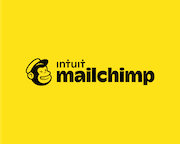Welcome to the world of personalization software, where businesses thrive by providing unique and tailored experiences to their customers. The modern consumer is no longer satisfied with a one-size-fits-all approach and expects brands to recognize their individuality. This is where personalization software comes into play. It allows businesses to collect and analyze customer data, create user profiles, and deliver personalized content, product recommendations, and targeted advertisements. Implementing this software can lead to improved customer engagement, increased sales, and better ROI. However, with so many options available on the market, how do you know which personalization software is the right fit for your business? In this buyer's guide, we'll explore the key features, benefits, and considerations to help you make an informed decision.
What is Personalization Software
In today's fast-paced world, time is of the essence. As a business, having a competitive edge over others has become crucial for sustainable success. This is where personalization software comes in. Personalization software is a tool that enables businesses to tailor their offerings to their customers' needs and preferences. Imagine walking into a store, and the salesperson knows exactly what you're looking for. This feeling of being understood and catered to is what personalization software aims to achieve. By collecting data on customers' behavior, personalization software identifies patterns and preferences that help businesses create personalized experiences for their customers. Common Use Cases for Personalization Software: - E-commerce websites can offer product recommendations based on a customer's browsing and purchase history. - Content websites can suggest articles based on a user's previously read content. - Travel websites can provide travel recommendations based on a user's past travel history, budget, and preferred locations. - Retail stores can offer personalized promotions based on a customer's purchase history. Personalization software is used by a wide range of industries, including retail, e-commerce, travel, and entertainment. Any company that aims to improve customer loyalty and increase customer engagement can benefit from personalization software. Even small businesses can make use of personalization software to offer unique and tailored experiences to their customers. Personalization software helps businesses to offer excellent customer experiences that are tailored to their customers' needs. Companies that use Personalization Software can gain a competitive advantage in today's market. By providing the right products and services to their customers, companies can increase customer satisfaction, build brand loyalty, and ultimately increase revenue.
Benefits of Personalization Software
Personalization software is a game-changer for businesses looking to enhance their customer experience. By providing tailored content, recommendations, and offers to individuals based on their interests, behaviors, and preferences, personalization software has become an essential tool for businesses of all sizes. Here are some of the main benefits of implementing personalization software: - Increased customer engagement: Personalization software enables businesses to engage with their customers on a more personal level, leading to higher levels of engagement and loyalty. - Improved customer experience: By providing personalized recommendations and offers, businesses can improve their customers' experience while interacting with their brand, leading to increased customer satisfaction and loyalty. - Enhanced marketing efficiency: Personalized marketing messages and campaigns have a much higher success rate than generic ones, leading to increased marketing efficiency and a higher ROI. - Higher conversion rates: Personalization software can help businesses increase their conversion rates by delivering customized offers and recommendations that are more likely to resonate with their customers. - Better data-driven decision-making: By collecting and analyzing customer data, personalization software can provide businesses with valuable insights into their customers' behaviors and preferences, helping them to make data-driven decisions that can improve their overall performance. In summary, personalization software is a powerful tool for businesses looking to improve their customer experience, drive engagement and loyalty, and increase their efficiency and revenue.
Features of Personalization Software
Personalization software is rapidly becoming a vital tool for businesses of all sizes. This software allows businesses to tailor their applications, websites, and messaging to individual customers' preferences and behaviors. By doing so, businesses can offer a more engaging and relevant experience to users, leading to increased customer satisfaction and loyalty. Here are ten common features of personalization software: 1. User Profiles: All personalization software should be able to create and store individual user profiles. These profiles contain information such as the user's name, location, interests, and previous interactions with the business. 2. Recommendation Engines: Many personalization software solutions include a recommendation engine that provides customers with personalized product recommendations based on their previous interactions with the business. 3. Behavioral Targeting: Personalization software can track a user's behavior on a website or application and use that information to present them with tailored content. 4. A/B Testing: Some personalization software solutions offer A/B testing capabilities, allowing businesses to test different versions of a website or application to determine which one performs better with different users. 5. Dynamic Content: Personalization software can enable the delivery of dynamic content - content that changes automatically based on a user's behavior or preferences. 6. Real-Time Personalization: Some personalization software solutions offer real-time personalization capabilities, allowing businesses to deliver tailored content to users in real-time as they navigate a website or application. 7. Multi-Channel Personalization: Many businesses operate across multiple channels. Personalization software can help businesses deliver a consistent, personalized experience across all channels, including websites, applications, email, and social media. 8. Third-Party Integrations: Personalization software can integrate with third-party tools such as customer relationship management (CRM) software or marketing automation tools to enhance its capabilities. 9. Reporting and Analytics: Businesses need to be able to measure the effectiveness of their personalization efforts. Personalization software solutions often include built-in reporting and analytics capabilities to help businesses track performance. 10. Customization and Flexibility: Finally, personalization software should offer customization and flexibility to suit different business needs. Businesses should be able to tailor the personalization software to their specific requirements, whether that be in terms of the user interface, data integration, or specific personalization features. Overall, personalization software offers an exciting way for businesses to improve customer engagement and satisfaction. By personalizing the customer experience, businesses can build stronger relationships with their customers, ultimately leading to increased sales and revenue.
Considerations of Personalization Software
Personalization software is a powerful tool for businesses seeking to tailor their customers' experience and increase conversions. The right software can boost engagement, customer satisfaction, and ultimately, sales. Here are some key factors that businesses should consider when purchasing personalized software: 1. Data Management: Personalization software depends on data. It is essential to select software that can integrate with your company's existing data sources. Data synchronization and integration will help personalize your customers' experience effectively. 2. Ease of Use: Personalization software that is easy to use can significantly reduce the learning curve and enable quick adoption. Your team should easily maneuver the functionalities of the software. The more straightforward the software is, the faster the team can leverage it for personalization and better customer experiences. 3. Flexibility: Software that can be tailored to the specific needs of your business is vital. When selecting software, it is necessary to consider how each feature aligns with your objectives and priorities. Such software should provide the flexibility to tailor the customer experience to your brand, personalized analytics, and customer demographics. 4. Integration Capabilities: The best personalization software can easily integrate with other software that your organization uses daily. With an integration-friendly software, you can scale up your personalization efforts. 5. Scalability: Your business may experience growth, so it is essential that you invest in personalization software that will scale as your business grows. The software should be able to accommodate more customer data, support more business processes and integrate with a more extensive range of software. 6. Support: A comprehensive personalization tool should have excellent support for its users. The vendor should offer helpful and easy-to-understand documentation about the software, customer support, and demonstrate knowledge required for customization, integrations, and deployments. In conclusion, Personalization software improves the customer experience and the business's bottom line. Consider the factors mentioned above when selecting personalization software for your company. It is best to select software that easily integrates with other software, flexible and customizable, aligns with your company's priorities, easy to use, scalable, and vendor-supported. Make a wise investment in personalization technology that meets your specific objectives and delivers a more personalized, memorable and meaningful experience to your customers.
Software Trends for Personalization Software
In 2023 and beyond, personalization software trends are set to revolutionize the way brands interact with their customers. #1 Personalized Content is the top priority for businesses in the coming years. Customers' desire for tailored experiences is driving the adoption of personalization software. #2 AI-Powered Content is another trend that will take center stage. Customizing content using artificial intelligence will enable brands to create unique content that resonates with their audience. #3 Interactive Content is an essential trend for businesses, with an increasing demand for immersive experiences. Using interactive elements in your content can drive engagement and increase brand loyalty. #4 Data Privacy is a hot-button issue that will be a major concern for businesses. Brands must ensure that their personalization efforts do not violate data privacy regulations. Keeping up with these personalization software trends will enable businesses to enhance the customer experience, deepen customer relationships, and drive sales growth.






